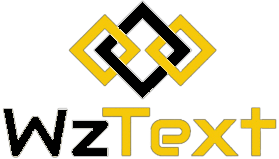Know Your Business processes are similar to KYC procedures. The distinction is that KYB focuses on firms and manufacturers first, before moving on to systems that target products or clients. Any major bank that handles financial transactions is required to audit the KYB of entities with which it does business. So, without any wait, let’s understand the meaning of Know Your Business.
What do you mean by Know Your Business (KYB)?
Prior to starting a business with another company, corporations must protect their assets. Companies must know whether their funds are being misappropriated by dishonest corporate managers, lenders, or money launderers. The Know Your Business process decides whether an illegitimate or a shell firm is dealing with private companies in this way. Know Your Business processes validate the corporate records of prospective clients as well as the confidential information of the senior management in charge of the client’s activities.
Corporations have a responsibility to know the Ultimate Beneficial Ownership (UBO) of the entities with which they do business, owing to the legal requirements. The legal body that is the corporation’s beneficiary is referred to as the UBO. Dealing with illegal groups can be damaging to a company’s image. As a result, KYB should conduct Due Diligence processes on the UBOs structure (CDD).
KYB Processes: What are they?
Organizations devise Know Your Business processes to conform with a variety of laws, including anti-money laundering (AML) and counter-terrorist funding legislation (CFT). Know Your Business processes are carried out to protect businesses from potential money laundering crimes or terrorism threats, in accordance with the global AML Regulatory standards.
KYB standards are satisfied by organizations checking different facts and acquiring documentation from trustworthy sources. The company’s corporate register and the names of the UBOs, as well as the individuals owning 25% or more of the organization’s shares, are among these records. Following the authentication of identity, businesses need to track the actions of the appropriate agency to validate their stakeholders’ risk profiles. The main aim is to detect and assess any illegal activity. The KYB mechanism prevents businesses from being utilized for money laundering or terrorism acts by any negligence, as well as preventing potential theft from their accounts.
Regulatory Compliance
Standard procedures for checking a business owner’s identity, reviewing the management structure and records, and assessing the identities of the UBOs are time-taking. As a result, corporations that wish to comply with AML laws and secure their enterprises automate the authentication process by employing digital ID verification providers. Digital verification allows businesses to have simple access to KYB processes and compliance.
When assessing the information of UBOs and partners then global business records and sanctions databases are utilized. Furthermore, constant tracking and monitoring ensure that companies are always compliant. Corporations acquire APIs to collect and verify registration data that is of official and commercial nature in automatic KYB procedures. The automated business verification services gather valuable information for the company in addition to the business authorization code.
Businesses That Require KYB Processes
All financial organizations that allow money transactions, such as banks, are required to adhere to the KYB processes. Businesses must evaluate and check the financial and organizational records of their key global stakeholders. Companies, in this way, shield themselves against document and identity theft as well as ensuring the legitimacy of all the transactions. Furthermore, KYB protocols must be completed in their entirety in order to comply with the ever-evolving AML laws. Financial institutions that follow AML legislation avoid fines and damage to their image.
Few Examples of KYB Laws
The AML Directives in Europe specifies the KYC and KYB processes and requirements. According to these directives, appropriate care should be taken to determine who the UBO is, as well as the comprehensive ownership structure. Furthermore, the EU has certain KYB conditions. In Europe, for instance, the client does not identify and verify information received from a credible source. Also, in businesses, the rights holder is identified, and actions are taken to check this person’s identification information. The commercial relationship’s purpose and consistency are then assessed. Finally, corporate relationships are continuously tracked.

